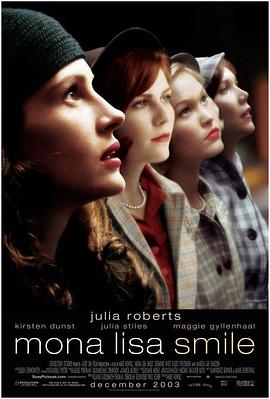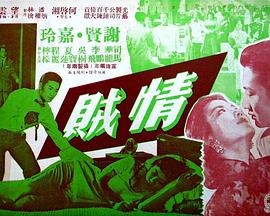简介
Also known as THE LONELY WIFE for the anglophone, adapted from Tagore’s novella,CHARULATA is Satyajit Ray’s sally into the Bengali upper class of theVictorian Calcutta in the 1880s, and the titular heroine is Charu (Madhabi Mukherjee, the leading actress in THE BIG CITY 1963), a young wife of Bhupati (Shailen Mukherjee), a liberal-minded intellectual who runs a politcal newspaper“the Sentinel”.
The plot moves in a glacial pace and Ray patiently magnifies Charu’s stagnation and boredom with so unobtrusive adexterity that we might not even realize our own brazen intrusion, house-bound and lassitude-stricken, Charu takes pleasure in reading, but her reading material is too sentimental for her husband’s noble taste, only if a kindred spirit would crop up to keep her company, and that man is Amal (Soumitra Chatterkee), Bhupati’s cousin who has just graduated from college, and is endowed with a luxury of an indeterminate goal in life, apart from a flair for literature and music similar to Charu.
A workaholic notwithstanding, Bhupati is fully aware of Charu’s loneliness, whose life is disproportionally constituted by wandering in their fancy domicile, perusing from books to magazines and playing cards.He is also judicious enough to discern Charu’s knack of writing, so he consigns Amal to secretly motivate her into writing her own stories, a mission too challenging for a drippy Amal to accomplish, instead he is actuated to write an essay himself and consequently gets it published, which causes a seismic jolt in Charu.
At first, Charu’s reaction seems irrational, but what Ray hammers home to viewers is the metaphor of writing, to Charu it is established as a liberation of her suppressed feelings, a kindred spirit that she connects with a laidback, youthful Amal but not with her mature and loving husband, that is why she asks Amal to keep his writing private, because it is forbidden. Once the simple-minded Amal publishes his work, it stirs Charu as an initiation of her own countermove, a some sort of subconscious competition she knows she can no longer resist, and it turns out, she is the more talent writer, she declares her affection to Amal, in a subtle fashion of preparing for his paan, it wrong-foots Amal and the fallout is tangibly presaged by a shot of both behind the iron bars of the window.
When Bhupati’s fourth estate undertaking comes in for a severe setback due to a betrayal of trust, a deeply guilt-ridden Amal can not bear of adding insult to injury and chooses to abscond by himself, which leaves a devastating Charu in the lurch, ultimately its maudlin coda shatters the seemingly propitious emotional renewal of the couple with an equivocal gesture (materializes almost like a glitch) after Bhupati gets a glimpse of Charu’s wailing over his departed cousin.
As accomplished as one can contest for its artistry, particularly of its majestic composition against the impeccably designed interior setting and a steady hand in emotional drilling (Madhabi Mukherjee is a beady heads-turner andSoumitra Chatterjee exudes sympathetic insouciance most of the time), CHARULATA cannot convince this reviewer that it is Ray’s best, as a profound demonstration of a wife/woman’s internment and emancipation off her own bats, it teeters on the thin edge of over-egging the central melodrama, by comparison,THE BIG CITY is a much competent chord-striker.
referential film: Ray’s THE BIG CITY (1963, 8.7/10).
"<>""}
Also known as THE LONELY WIFE for the anglophone, adapted from Tagore’s novella,CHARULATA is Satyajit Ray’s sally into the Bengali upper class of theVictorian Calcutta in the 1880s, and the titular heroine is Charu (Madhabi Mukherjee, the leading actress in THE BIG CITY 1963), a young wife of Bhupati (Shailen Mukherjee), a liberal-minded intellectual who runs a politcal newspaper“the Sentinel”.
The plot moves in a glacial pace and Ray patiently magnifies Charu’s stagnation and boredom with so unobtrusive adexterity that we might not even realize our own brazen intrusion, house-bound and lassitude-stricken, Charu takes pleasure in reading, but her reading material is too sentimental for her husband’s noble taste, only if a kindred spirit would crop up to keep her company, and that man is Amal (Soumitra Chatterkee), Bhupati’s cousin who has just graduated from college, and is endowed with a luxury of an indeterminate goal in life, apart from a flair for literature and music similar to Charu.
A workaholic notwithstanding, Bhupati is fully aware of Charu’s loneliness, whose life is disproportionally constituted by wandering in their fancy domicile, perusing from books to magazines and playing cards.He is also judicious enough to discern Charu’s knack of writing, so he consigns Amal to secretly motivate her into writing her own stories, a mission too challenging for a drippy Amal to accomplish, instead he is actuated to write an essay himself and consequently gets it published, which causes a seismic jolt in Charu.
At first, Charu’s reaction seems irrational, but what Ray hammers home to viewers is the metaphor of writing, to Charu it is established as a liberation of her suppressed feelings, a kindred spirit that she connects with a laidback, youthful Amal but not with her mature and loving husband, that is why she asks Amal to keep his writing private, because it is forbidden. Once the simple-minded Amal publishes his work, it stirs Charu as an initiation of her own countermove, a some sort of subconscious competition she knows she can no longer resist, and it turns out, she is the more talent writer, she declares her affection to Amal, in a subtle fashion of preparing for his paan, it wrong-foots Amal and the fallout is tangibly presaged by a shot of both behind the iron bars of the window.
When Bhupati’s fourth estate undertaking comes in for a severe setback due to a betrayal of trust, a deeply guilt-ridden Amal can not bear of adding insult to injury and chooses to abscond by himself, which leaves a devastating Charu in the lurch, ultimately its maudlin coda shatters the seemingly propitious emotional renewal of the couple with an equivocal gesture (materializes almost like a glitch) after Bhupati gets a glimpse of Charu’s wailing over his departed cousin.
As accomplished as one can contest for its artistry, particularly of its majestic composition against the impeccably designed interior setting and a steady hand in emotional drilling (Madhabi Mukherjee is a beady heads-turner andSoumitra Chatterjee exudes sympathetic insouciance most of the time), CHARULATA cannot convince this reviewer that it is Ray’s best, as a profound demonstration of a wife/woman’s internment and emancipation off her own bats, it teeters on the thin edge of over-egging the central melodrama, by comparison,THE BIG CITY is a much competent chord-striker.
referential film: Ray’s THE BIG CITY (1963, 8.7/10).
{else}恰鲁拉达(MadhabiMukherjee饰)和丈夫结婚了,然而,令她没有想到的是,等待着自己的并非充满了幸福和快乐的婚姻生活。恰鲁拉达的丈夫是一名知识分子,虽然饱读诗书,但他选择将全部的精力投入到研究政治刊物之中,在他的思维里,妻子只需要料理好家事即可,并不需要自己的陪伴和理解。 随着时间的推移,恰鲁拉达和丈夫之间的关系越来越冷淡,她终日生活在孤独之中,内心里非常的苦闷。就在这个节骨眼上,丈夫的堂兄走近了恰鲁拉达的生活,他是一位热情洋溢的诗人,对生活充满了憧憬,在他的影响下,恰鲁拉达渐渐走出了忧郁,并且明白了如何追求心中的梦想。{end if}






